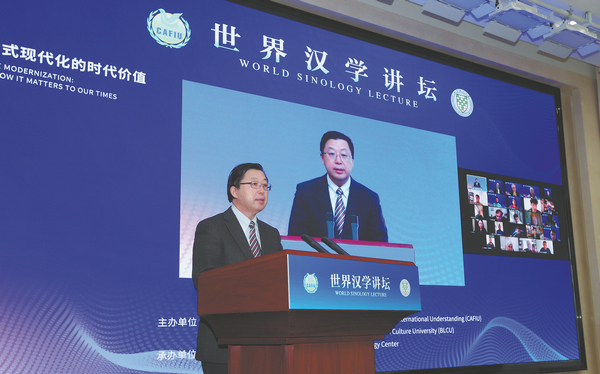Lecture program kicks off


China experts from nine countries participate in a symposium on the Chinese path to modernization, Fang Aiqing reports.
The Chinese path to modernization has epochal significance around the world, according to Alexey N. Aleksakhin, professor of the department of Chinese, Vietnamese, Laotian and Thai languages at the Moscow State Institute of International Relations, Russia.
He was attending the launch ceremony of the World Sinology Lecture in Beijing on Jan 10, and, together with scholars from nine countries, giving an address on "why China's modernization matters to our times".
In the coming year, the World Sinology Lecture program will invite China experts from various cultural backgrounds to a monthly symposium discussing topics such as economics, politics, culture, society and ecological civilization, among others, according to Liu Hongcai, deputy head of the Chinese Association for International Understanding, one of the organizers.
Aleksakhin said that the connotations of China's path to modernization, as a key word in the report to the 20th National Congress of the Communist Party of China in October, help to understand China's future under the leadership of the CPC, and that China's modernization pursues the coordination of the material and spiritual sides of civilization, and promotes people's all-around development, while continuously improving their living conditions.
China's achievements in developing a social economy and culture provide precious references for other countries, including Russia, he noted.
In his speech, Aleksakhin spoke of the first Chinese emperor Qinshihuang, founder of the Qin Dynasty (221-206 BC), who unified not only the territory of the country, but also its written language, which laid the foundation of the nation's profound cultural traditions.





































